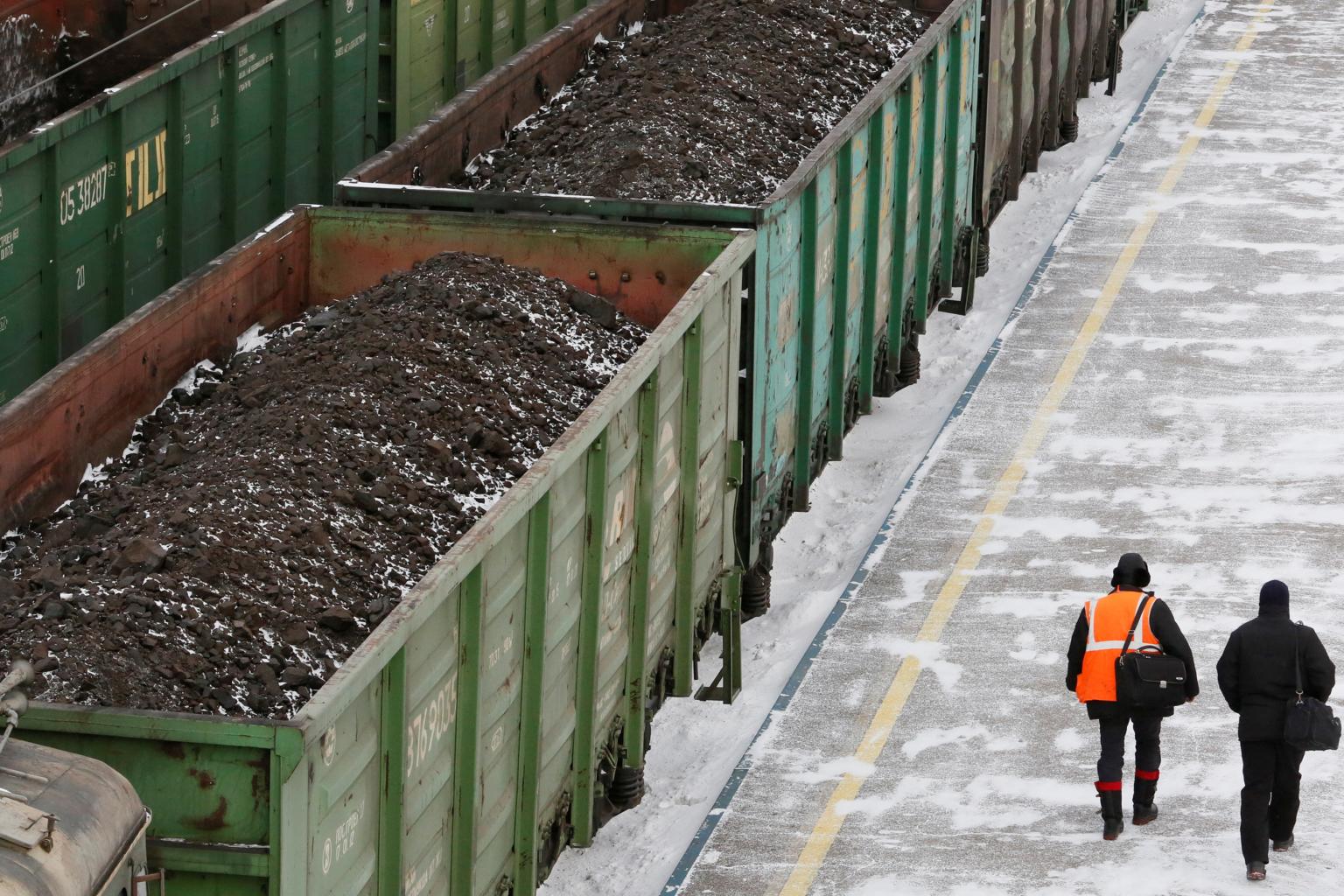EU adopts new sanctions against Russia including coal import ban
Sign up now: Get ST's newsletters delivered to your inbox

EU nations sparred over the length of the phase-in period for the coal ban.
PHOTO: REUTERS
Follow topic:
BRUSSELS (REUTERS, BLOOMBERG) - The European Union on Friday (April 8) formally adopted its fifth package of sanctions against Russia, including bans on the import of coal, wood, chemicals and other products.
The measures also prevent many Russian vessels and trucks from accessing the EU, further crippling trade, and will ban all transactions with four Russian banks, including VTB.
The ban on coal imports will be fully effective from the second week of August. No new contracts can be signed from Friday, when sanctions are to be published in the EU’s official journal.
Existing contracts will have to be terminated by the second week of August, meaning that Russia can continue to receive payments from the EU on coal exports until then.
“These latest sanctions were adopted following the atrocities committed by Russian armed forces in Bucha and other places under Russian occupation,” EU’s top diplomat, Josep Borrell, said in a statement.
The Kremlin has said that Western allegations Russian forces committed war crimes by executing civilians in the Ukrainian town of Bucha were a “monstrous forgery” aimed at denigrating the Russian army.
In response to the coal ban, Kremlin spokesperson Dmitry Peskov said on Friday that the commodity was in high demand, and that Russian coal earmarked for Europe would be redirected to other markets if the EU refused it.
“Coal is still a highly sought-after commodity. As consumption in Europe is abandoned, here there is a certain grace period, coal flows will be redirected to alternative markets,” Peskov said.
In addition to coal, the new EU sanctions ban imports from Russia of many other commodities and products, including wood, cement, fertilisers, seafood and liquor, for a total value estimated in €5.5 billion (S$8.2 billion) a year.
The EU also restricted export to Russia of a number of products, including jet fuel, quantum computers, advanced semiconductors, high-end electronics, software, sensitive machinery and transportation equipment, for a total value of €10 billion a year.
The EU had held back from hitting Russia's energy sector in previous sanctions rounds after Germany and Hungary blocked the move given their reliance on Russian fossil fuels. Some member states continue to push for further measures on Russian energy imports and oil in particular.
Borrell had earlier said the issue of an oil embargo would be discussed next Monday when EU foreign ministers meet in Luxembourg. But a senior EU diplomat said on Friday this will not happen, adding it is for the European Commission, the EU executive, to decide when to come forward with a proposal.
Still, the foreign ministers are expected to approve a further €500 million euros of EU funding to supply arms to Ukraine, the diplomat said, taking the bloc’s security support to €1.5 billion since the invasion began on Feb 24.

